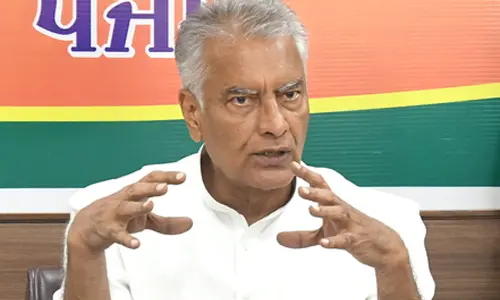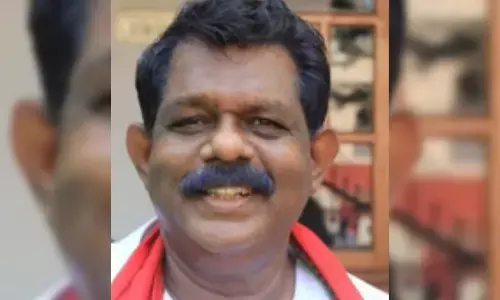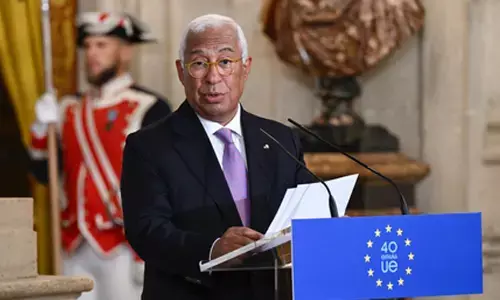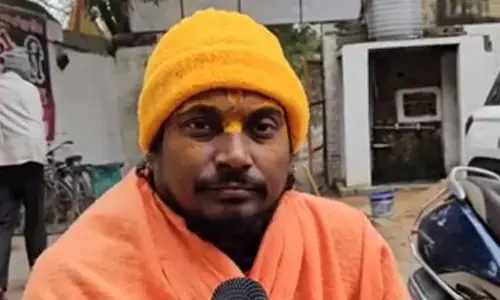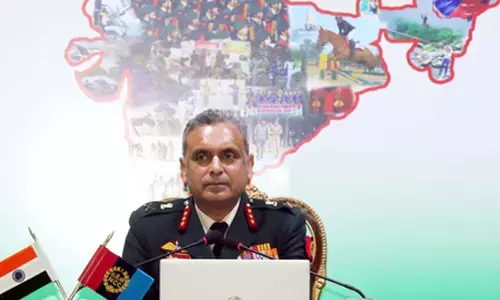Kurnool village, once a symbol of factional violence in Rayalaseema, on transformation path
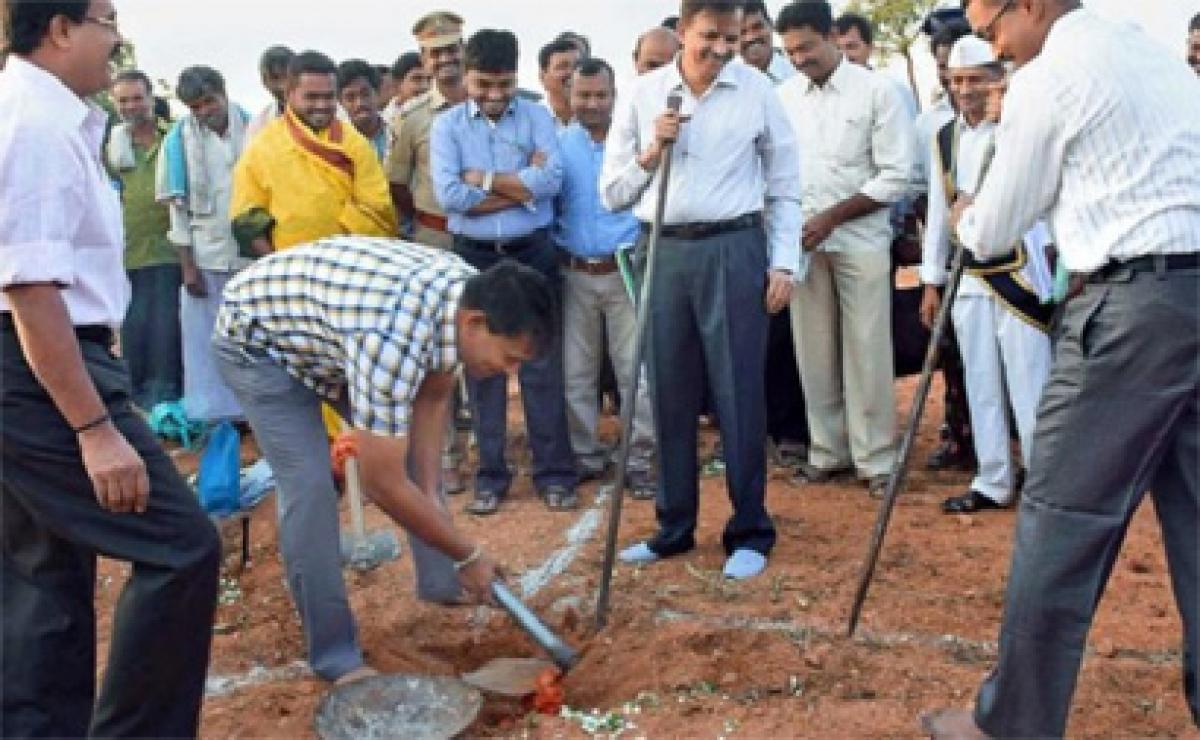
Once a symbol of bloody factional violence in the Rayalaseema region, this village in Kurnool district of Andhra Pradesh is on the path of transformation. Thanks to the initiative of Superintendent of Police A. Ravi Krishna, who has adopted the village, peace prevails and the families who were once at each other\'s throats, have realized the futility of violence.
Once a symbol of bloody factional violence in the Rayalaseema region, this village in Kurnool district of Andhra Pradesh is on the path of transformation. Thanks to the initiative of Superintendent of Police A. Ravi Krishna, who has adopted the village, peace prevails and the families who were once at each other's throats, have realized the futility of violence.
Going beyond the work often seen in such villages, Ravi Krishna has brought about a perceptible change by enabling the younger generation of the most dreaded factionists embark on a new journey of peace and development.
Focussing on education and infrastructure, Ravi Krishna bonded the community together, something never witnessed in five decades in this village, located in Devanakonda mandal, 50 km from Kurnool town.
In a village where government officers once feared to enter, he would stay overnight, visiting every household to understand problems and attempting to address them by coordinating with other departments and roping in NGOs, philanthropists and corporate bodies.
In one year, he brought about a visible change, as is evident from the high school building constructed at a cost of Rs.16 lakh, a project that had been pending for 13 years.
The young Indian Police Service (IPS) officer has even purchased a piece of land in this village of 5,000 people to construct a house so that he can come and stay with the villagers at least once in six months, even after he is transferred.
A blacktop road was laid connecting the village, which lies off the Kurnool-Bellary highway. Villagers say it was deliberately kept in a pathetic condition for decades as Palegar Venkatappa Naidu, the most dreaded factional leader in the region, feared a threat from his rivals coming from outside.
After escaping about a dozen attacks, Venkatappa Naidu met a gory end in 2008 when his rivals killed him in the most brutal fashion, a characteristic feature of the factional violence.
The killers rammed an empty truck at high speed into the vehicle in which he, along with 10 others, were travelling. Leaving nothing to chance, bombs were hurled and the bodies hacked with sickles.
In 2014, 21 accused in Venkatappa's murder case were convicted by a court and sentenced to life imprisonment .
The 63-year-old factionist was involved in feuds which claimed 200 lives in Kappatralla and surrounding villages.
It all began in 1969, when Venkatappa removed Varam Kistappa as the sarpanch. A bloody fight began between two families which claimed lives of their members and followers. The feud inspired many Telugu movies on faction violence.
Today, Venkatappa's house is deserted while a stone's throw away the house of his rival, Maddiletty Naidu, is locked as he is in jail. A few yards away is the panchayat office, which was turned into a police outpost and at any given time, there would be at least 70 armed policemen to prevent clashes between the two groups.
The families of the followers of the warring factions and those sentenced in various cases are suffering as they lost their sole breadwinners, the majority of them in their 20s and 30s.
Today, the children of the victims and the accused share benches in the school.
"Our family is facing difficult times," says Mallika, daughter of Chinna Lalappa, who was sentenced to life in the Venkatappa murder case.
Eldest among four sisters and a brother, this Class 8 student dreams of becoming an IPS officer. The family is surviving on meagre earnings of Lalappa's father and brother, both small farmers.
K. Rasheed, a Class 10 student, said his father K. Abdul Rehman used to work for Venkatappa's faction and got a life sentence for killing a member of a rival faction. His younger brother is in Class 9 and their mother, an agriculture labourer, is fighting against all odds to educate them. Rasheed, a school topper, wants to become a scientist.
Revenge ran through generations to keep factional feuds alive since early 1970s. "The revenge feeling is no longer there. I told them that they have to stop this because both sides will be losers. No one wins in this faction fight," Ravi Krishna told IANS.
Though no major incident occurred after 2008, the villagers lived in fear. The officer's efforts are yielding results. School enrollment has increased and the dropout rate, which was as high as 50 percent is down to zero.
This year, Ravi Krishna persuaded the families of agriculture labourers who migrate in search of work to leave behind their children so that their education is not affected. He even ensured that a seasonal hostel is set up in the village for such children.
"Education is my passion. I believe that when a society is educated, crime comes down," said the young officer, who has set a goal of producing an IPS officer from the village in six to seven years.
The officer, who sent 30 youths for training as police constables, is also conducting job fairs for youth, has formed women's self-help groups and a society of farmers. He has also persuaded a leading bank of the district to open a branch in the village.
He is now motivating police officers in other villages to adopt schools, especially in 77 villages of the district affected by the factional violence.
The Rayalaseema region comprising Anantapur, Kadapa, Chittoor and Kurnool is notorious for factional violence, which claimed over 500 lives in the last 15 years. Factions backed by the ruling TDP or Congress have been fighting for supremacy in the villages.








